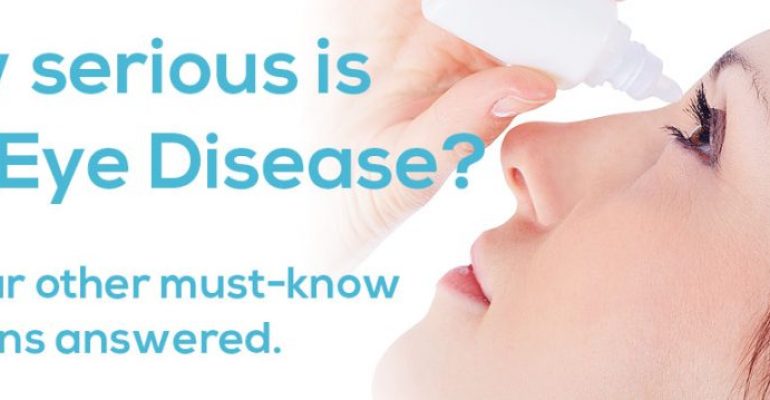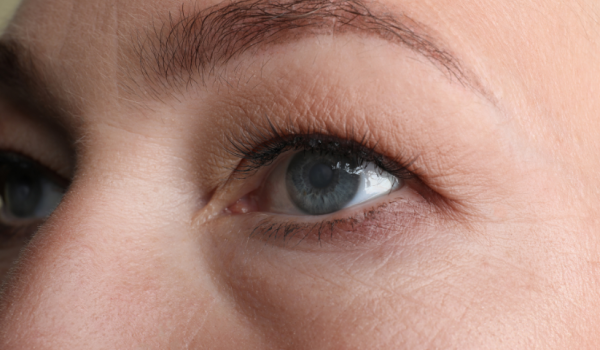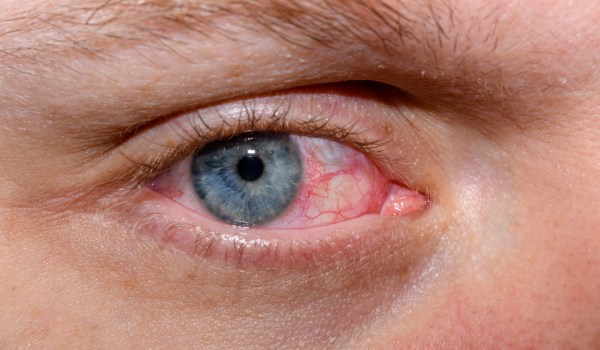And four other must-know questions answered.
Dry Eye Disease (DED), also known as Dry Eye Syndrome, is a very common eye complaint. So common, in fact, that estimates suggest up to a third of people may be affected by it to some degree. So we see a lot of cases here in clinic.
The word ‘disease’, though? Well, that makes it sound slightly frightening! So just how bad is DED? And what should you do about it? Here are some answers…
What is it?
Our understanding of Dry Eye Disease has deepened in recent years. In fact, last year the definition of DED was expanded in a major international report; it’s a dense but useful document if you’d like to read it for yourself. But here’s the short answer: DED is a condition that occurs when the eyes fail to lubricate properly – because they aren’t producing enough tears, or because the quality of tears is deficient.
What does it feel like?
Symptoms vary from person to person. Sometimes they can be quite mild. In severe cases they may be quite painful. Some of the common symptoms include red eyes, and eyelids that are sticky after sleep. The eyes may also feel ‘gritty’ and sore, especially as the day goes on. Vision may be slightly blurry. In more painful cases, there may be a burning sensation.
What causes it?
Tear production is a complex process that involves lacrimal glands, tiny clearance tubes called puncta and delicate layers of mucous, water and lipids. Several things can disturb this process, and the reasons may be difficult to identify. Some common risk factors include: hormonal changes (for example during the menopause), blepharitis (inflammation of the eyelids), side effects from other medications, atmospheric irritants (eg dust and smoke), and screen use (which tends to increase eye strain and reduce the frequency of blinking). Age also plays a part; the chances of developing DED increase as we get older.
How serious is it?
Dry Eye Disease is often long-lasting, usually progressive, and if left untreated has the potential to produce further complications, such as inflammation of the cornea or conjunctivitis. The bad news is that there is no catch-all cure for DED. The good news, however, is that it can be managed – and management should provide relief and respite from the nastier symptoms.
How do you treat it?
There are two levels to DED treatment. The first is good self-care. There are lots of things you can do to reduce the symptoms of dry eyes, such as a good cleaning regime (using a warm flannel over the eyelids to remove dust and clear oil build-up, for example), avoiding eye make-up and taking regular screen breaks. We might also recommend a humidifier for the home or office.
The second level is clinical treatment. Here at Anderson Eye Care, we offer an advanced diagnostic test for DED using the TearLab Osmolarity System. We can then work out the best way forward for you. This might mean a simple course of eye drops or gels, or anti-inflammatory medicines (such as tetracyclines or corticosteroids). Or we might recommend a procedure. MicroBlepharoExfoliation (MBE), for example, can be used to clean the eyelids. Punctal occlusion adds tiny plugs to the tear ducts in order to reduce moisture loss. But this is just a starting point.
The bottom line? If you are suffering from persistently dry eyes, don’t ignore the symptoms! It’s important to have them checked. If you’d like to book an appointment here at the clinic, we would be glad to help you find out more.
Medical Disclaimer
This article is for information purposes only and should not be considered medical advice. If you or any other person has a medical concern, you should consult with your health care provider or seek other professional medical treatment. Never disregard professional medical advice or delay in seeking it because of something that you have read on this blog, website or in any linked materials.







